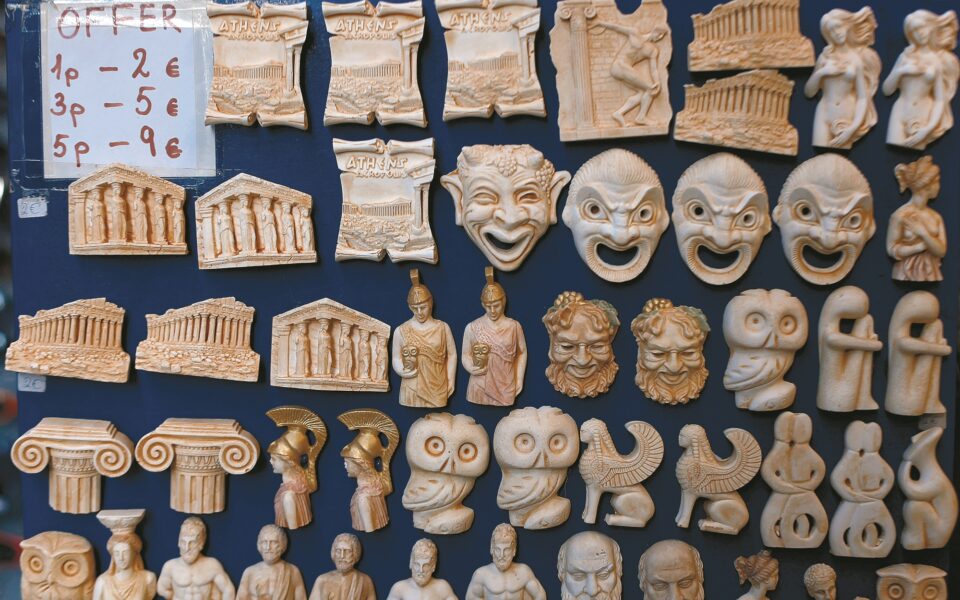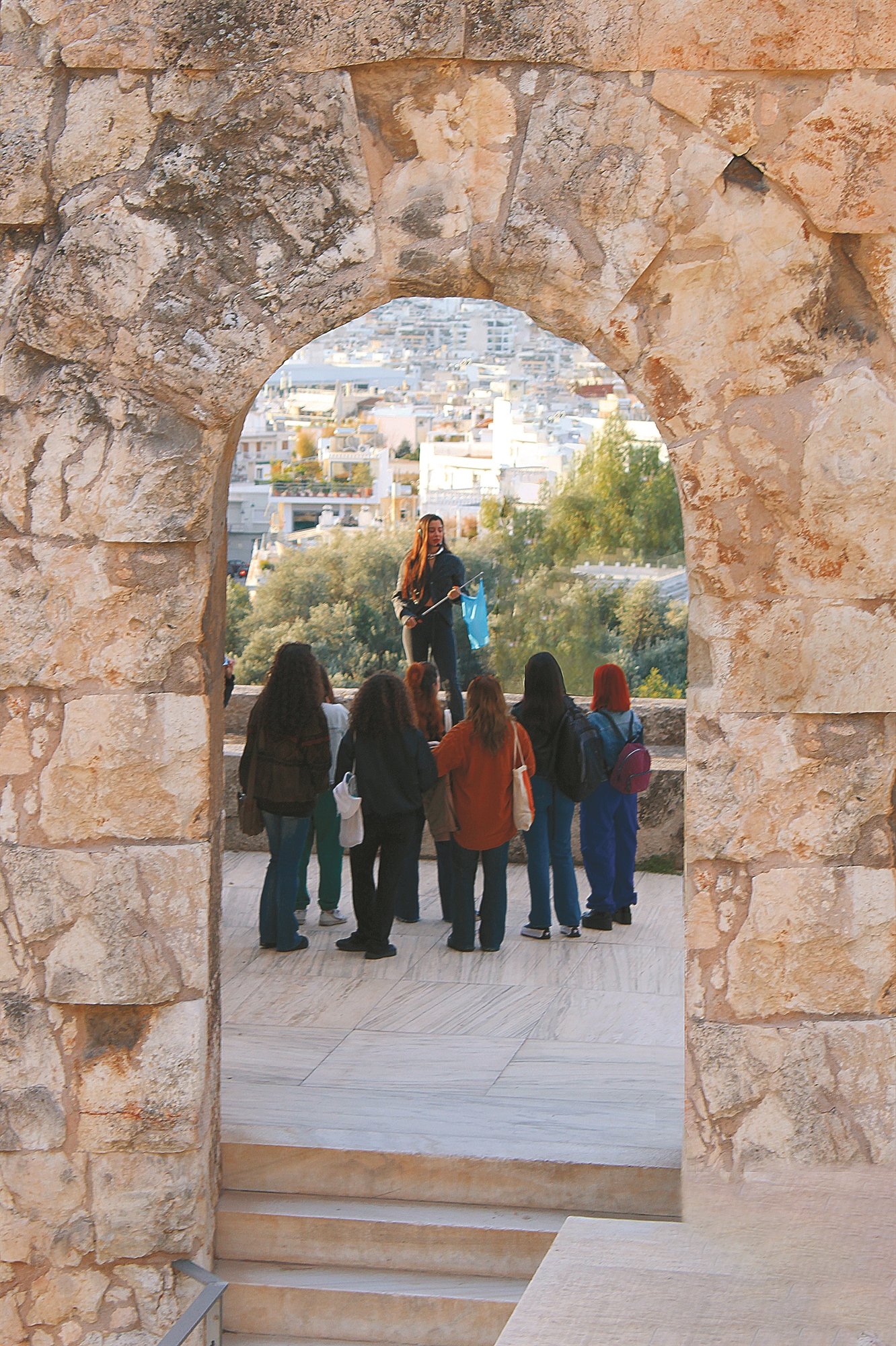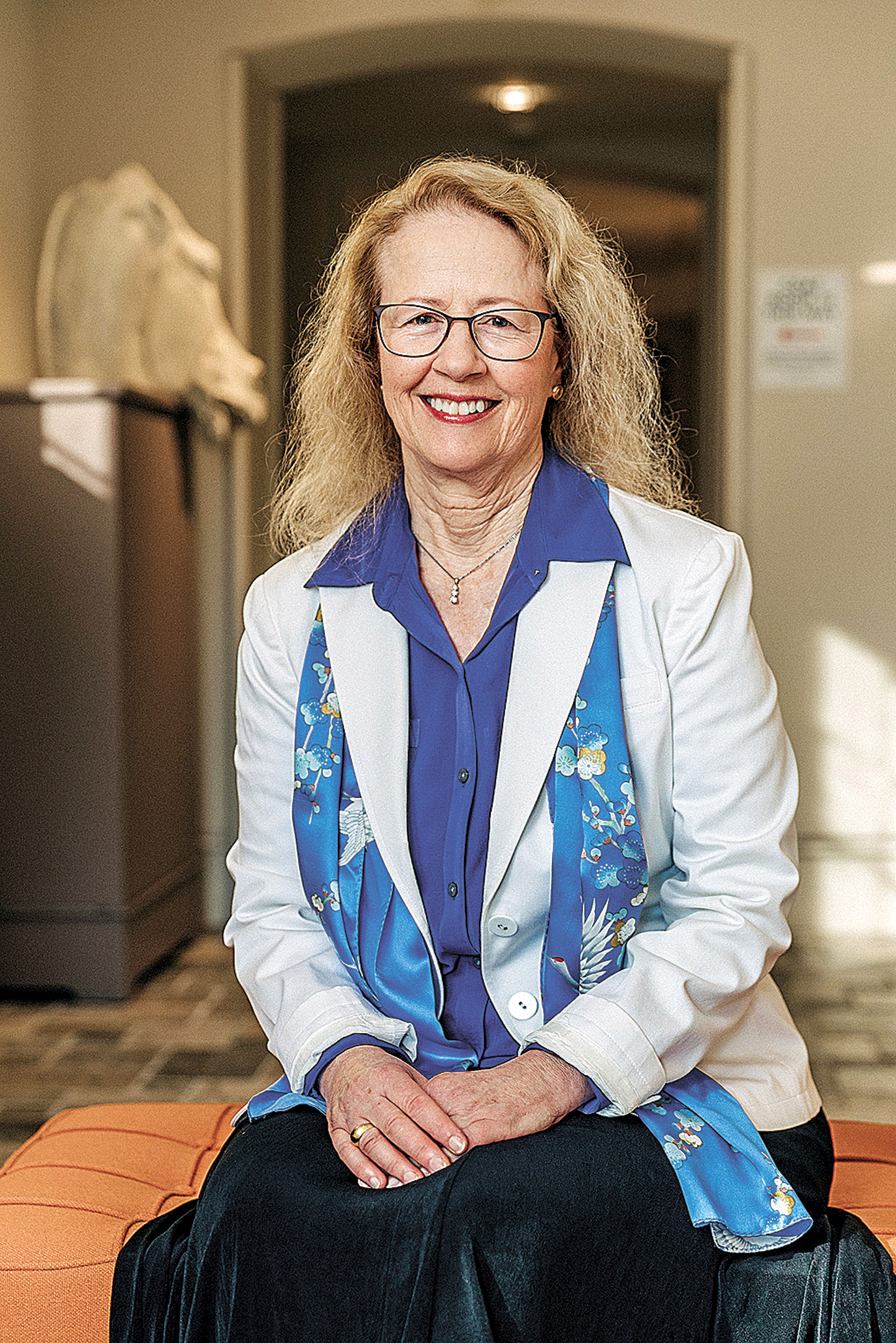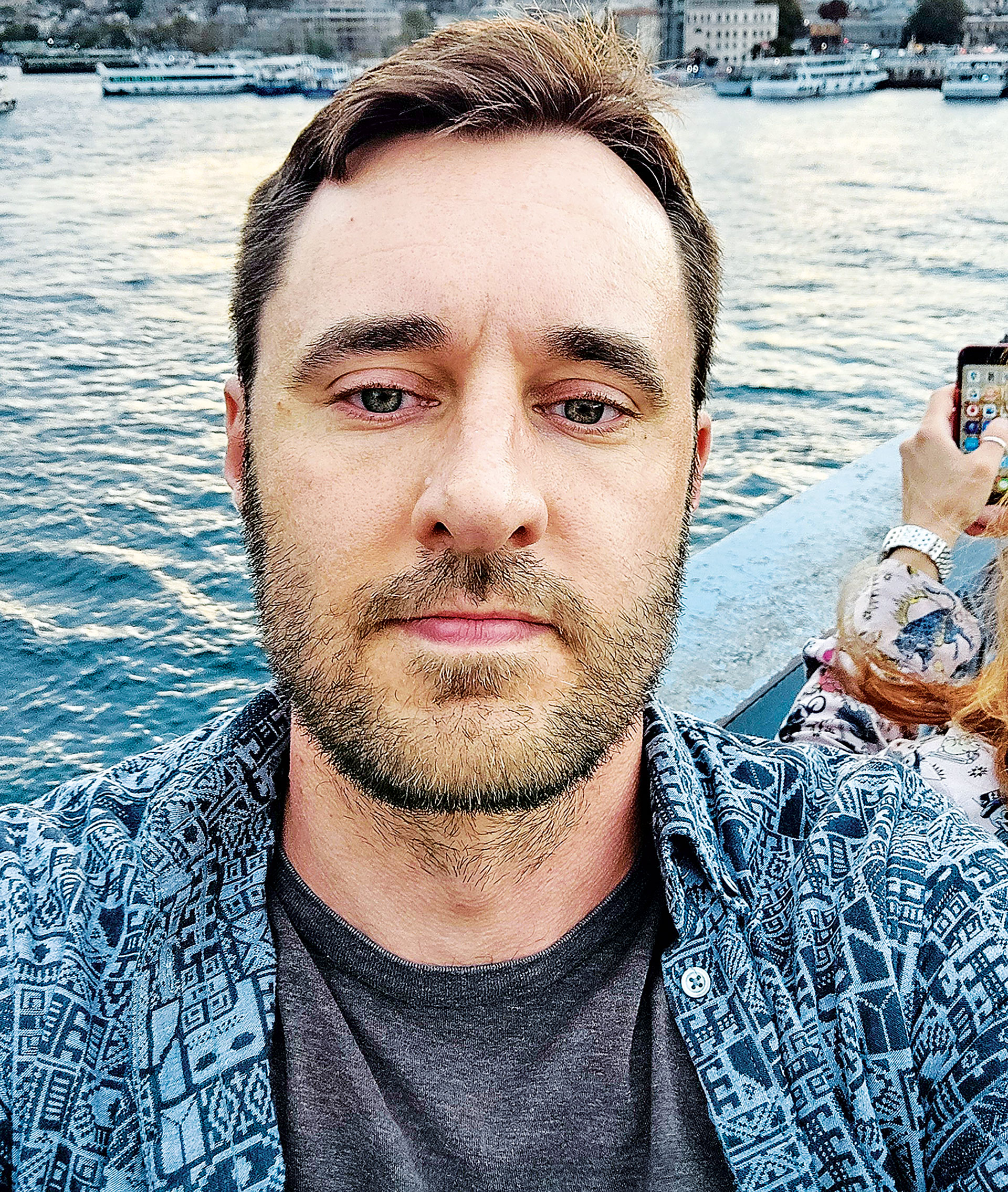Is national kitsch not so bad after all?
Kathimerini talks to Greeks trying to ‘clean up’ country’s image and foreigners who love all the stereotypes amid online furor over Eurovision entry

When Tina Kyriaki saw Marina Satti’s video for Greece’s entry for the Eurovision Song Contest for the first time, it made her mad. Very mad, in fact. “My first thought was that we were gouging out our own eyes,” the founder of Alternative Athens tells Kathimerini, quoting a Greek proverb.
Her anger, like that of many other Greeks, may seem misplaced at first, given the multitude of positive comments by foreign users for “Zari” on YouTube – where, it should be noted, it has been viewed nearly 6 million times. But what the noise surrounding Satti’s video and the more recent furor sparked by the costumes designed by Mary Katrantzou for the Olympic Flame lighting ceremony tell us is that Greeks are very sensitive about their country’s image. Even though we like to think that we’ve broken away from the stereotypical view held by tourists in the 1960s and 70s, it seems that this “look” – or a more modern version of it – is still in demand. “Zari” may troll how tourists view Greece, but foreigners don’t necessarily feel the same way.
Why are there so many posts by foreign social media commentators waxing lyrical about the video’s merits? Why does its bombardment of stereotypes – dancing on the Acropolis, roasting gyros on the spit, crazy taxi drivers, a city where anything goes – spell Greece to them? And what about the largely negative reaction to the video from the domestic audience? Does it point to an intolerance of aspects of Greek life that we reject as anachronistic or too “Eastern” or too “Balkan” – or all three? Does our constant concern for our image abroad perhaps say more about us than it does about others? And, finally, which Greece is attractive today? The Greece of Zorba dancing and souvlaki or the sophisticated simplicity of its practically untouched aspects, on the fringes of the tourism “success story”?
A defeat?
Tina Kyriaki is not just another businessperson in tourism. She has invested a lot of thought, time and money in the revival of the Greek tourism brand through two initiatives, Alternative Athens and Back to the Routes, which provide alternative tours in the Greek capital and other parts of the country.
“We have worked very hard over the past decade to change the stereotypical image that a large majority of travelers still have of Greece, and it’s hard. It is precisely this image that the Eurovision song’s video pokes fun at. But seriously, why did we think that foreigners have such a different image of Greece that they’d not only reject the video’s blatant stereotypes, but would actually get the ironic tone and smile?” she wonders.
Tyler Boersen, an American who was, until just a few days ago, international press officer for This is Athens, the City of Athens’ main tool for promoting the Greek capital as a tourism destination, seems to agree. “My foreign friends who have seen the video were mostly puzzled by [the clumsy male tourist’s] role in the video, which they were convinced was part of a new tourism marketing strategy meant to be shown abroad. They were more enthusiastic when we discussed its tension and tone. I suggested that it might be a critique of the ways that Greece has been made and shown to be culturally distinct from Europe and the US since the late 1960s – a model which needs to be overthrown.”
For Boersen, the complexity of musical influences reflected in Satti’s actual song is more telling of Greece and Athens’ bid to reinvent their international image through initiatives like This is Athens. “Satti ends up showing how that decades-old monoculture designed to attract and entertain foreign visitors will fail to reach a new generation of travelers, and at the same time, has become socially and culturally unsustainable,” he says.
The German ambassador in Athens, Andreas Kindl, is one of the few foreign diplomats in Greece who speak modern Greek fluently, thanks to his passion for classical studies and frequent visits to this country before the tourism boom.
“When I visited the Temple of Apollo at Bassae for the first time, it was still without the giant polystyrene tent protecting the ruins from the elements. For many Germans, that idea of ‘pure’ Classical antiquity, that canon of Acropolis, Olympia, Delphi and Epidaurus, is still one of the dominant images of Greece and it will remain so – almost untainted by Netflix,” he comments to Kathimerini. But thankfully, he adds, things have evolved, “and especially during the last 20 years, Athens and Greece have been added to a very diverse cultural map that is being explored and has become known also to a younger German and European generation.”
Concerning Germany in particular, Kindl believes that Greece’s image received a serious boost by being the country of honor at the Frankfurt Book Fair in 2001 and by the boom in translations of Greek literature that followed. “Nowadays, I think you might find more readers of Petros Markaris’ crime stories in Germany than in Greece. Or maybe it started with the growing relevance of the Athens Biennale culminating in Documenta 14 taking place in Kassel and Athens in 2017. And most recently, [filmmaker] Yorgos Lanthimos has made a great contribution to branding and to influencing the perception of what ‘Greek’ can mean. Greece has definitely become a ‘cool’ cultural destination,” says the German ambassador.
Another area where he thinks Greece ought to invest, is in efforts to make its new culinary scene “noticed more prominently and more widely as a fundamental trait of Greek culture.”
“I trust that the many German tourists will recognize the superb and varied quality of the Greek cuisine when they taste their local cheese or sausage,” he says.
Kindl adds that he regards himself as “very lucky to be able to live in Greece and explore the different regions because it will allow me to see the diversity and appreciate the luxury of not having to choose between a ‘Mediterranean’ or a ‘Balkan’ Greece.”
‘I believe that, deep down inside, a public discussion on the country’s image abroad signals insecurity and backwardness’
For Romanos Gerodimos, a professor of international politics and journalism at Bournemouth University in the UK, worrying about how others perceive you is a sign of insecurity. “You’ll never hear an Italian or Spanish or Portuguese person asking themselves how foreigners see their country. I believe that, deep down inside, a public discussion on the country’s image abroad signals insecurity and backwardness,” he says.
Similarly, Georges Prevelakis, professor emeritus in geopolitics at the Sorbonne in Paris, argues that the birth of modern Greece was based largely on a foreign view of Greek identity, which is why the issue is overly important to us. “We have been drawing an annuity from this image for the past two centuries,” he says. “Other countries had oil; we had this image, which is essentially how foreigners saw us, and is, therefore, regarded as valuable.”
To expand on this train of thought, it would probably be fair to say that people in the Western world, at least, appear to be somewhat fed up with the homogenization of behaviors, lifestyles and consumer habits brought on by globalization. This shift is also evident at the level of tourism policy, which is increasingly more focused on notions such as authenticity, locality and personalized experiences.
The exact opposite was the case back when Greece won Eurovision in 2005 with Elena Paparizou’s “My Number One”: The fact that people all over Europe were singing the song’s English lyrics was seen as a sign of progress, a kind of conformity that jibed with the desire to shake off national characteristics in favor of an idealized “European” identity. The present shift does not mean that we’re returning to an insular model nor to one of so-called “exoticism.”
Moussaka in Paris?
“I do want to cry a little when customers come in asking for moussaka, in December,” quips Mikaela Liaroutsos, a 38-year-old Greek-French chef and owner of the Etsi le Bistro and Etsi l’Ouzeri eateries in Paris.
She’ll never admit as much herself, but Liaroutsos is one of the chefs undertaking the task of introducing the sophisticated European palate to a much more modern, refined and eclectic version of Greek cuisine than what they probably know or believe it to be.
“Even people who seem open to new experiences will sometimes insist that you give them the same experience they had on their summer holiday. Even if they weren’t very fortunate in what they tasted in Greece, it appears that there’s an invincible emotional bond between food and the idea of holidays, meaning that what you think is old-fashioned, tired or tacky, may be an unshakeable point of reference for a French person,” she says.
Many diners also expect to hear traditional Greek music when coming to her restaurants. “It’s not that they won’t come again if they don’t hear it, but they honestly get so happy when they do.”
Tina Kyriaki faces similar challenges. “Foreign companies coming to Athens for staff retreats usually want Greek dancing classes or an outing to a taverna where people smash plates. We have to explain that we don’t do that anymore and that tavernas which put on such spectacles are usually not very good. They’re not always convinced.”

Katherine Schwab is an expert on ancient Greek art and archaeology who teaches art history at Fairfield University in Connecticut and visits Greece regularly. Her research is focused on the Parthenon Sculptures. She agrees that stereotypes about the country are something of an obsession. “Over several decades, during my annual research trips to Athens, I have observed change and transformation continually under way. Now, more and more Americans are interested in exploring Athens rather than merely passing through before rushing off to the islands for vacation,” she says. “It seems as though tourists are also seeking experiences, such as learning about Greek cooking, Greek wines, and traditions such as weaving, as well as visiting historical and archaeological sites and museums. There is a greater sense of curiosity and desire to explore. Repeat visitors have the luxury to build layers of understanding about the remarkable history and heritage of the country. Greece is complex in its culture and history, as well as remarkable for its hospitality and people. It seems that more and more tourists desire to see the country with these qualities in mind,” Schwab adds.
Tyler Boersen adds another perspective in the debate, referring to the TikTok generation. “Satti’s video feels like a TikTok scroll about the adventures of a foreign tourist in Athens during a ‘Greekend.’ These users, who are mostly under 30, will come to Athens to be photographed on the Acropolis like Zendaya and Jacob Elordi. They want to be photographed in a swimsuit looking like statues, or on a private rooftop having exclusive experiences with their dear friends. They want to refill their water bottles at water fountains. They want to be shocked by the redness of tomatoes and the elegance of the Mediterranean diet. They do not want to think about the guns and systemic violence that are part of their everyday lives,” he argues. “Lastly, they do not want cultural differences to be emphasized and amplified for them until they become louder than everyday life, because this makes them feel disoriented.”
But why, I wonder. Isn’t highlighting cultural differences the absolute goal in the tourism industry nowadays? Don’t people travel for the illusory experience of “living like a local” for a few days?
“Cultural difference is already something they encounter as part of their everyday life when they order a coffee from the Starbucks near their home, and they feel that they already know how to negotiate across cultural borders. Satti’s music and the accompanying video seem to adopt this generational perspective in its aesthetic and lyrics. And like many of those TikTok videos, it is also self-aware and internally ridiculous, showing that Satti does and doesn’t simply accept what she is saying as true,” he says.
A plastic table
I ask Tina Kyriaki to give us a more optimistic epilogue for this discussion on the “Greek brand.”
“I spent a few days in the seaside town of Methana [in the Peloponnese] recently and was walking along the coastal road one night when I saw a couple sitting in the garden of their humble home at either end of a plastic table, looking out at the sea, which was just a couple of meters away, and not speaking. I don’t know if they were happy, but I did think how fortunate they were to be able to enjoy the peace and harmony of a moment which others will pay hundreds of euros to have just fleetingly. This is something our country gives so generously and so democratically, and I hope it will continue to do so for many years to come.”
Between two Greeces: Navigating cliches and opportunities
So, what is after all the image that Greece of 2024 seeks to sell? Two women entrepreneurs and three philhellenes speak their minds about the different aspects of the Greece brand
Andreas Kindl
German ambassador to Greece

‘Athens and Greece have been added to a very diverse cultural map that is being explored and has become known also to a younger German and European generation’
Katherine Schwab
Professor at Fairfield University, USA

‘It seems as though tourists are also seeking experiences, as well as visiting historical and archaeological sites and museums. There is a greater sense of curiosity and desire to explore’
Mikaela Liaouroutsos
Paris-based chef

‘There’s an invincible emotional bond between food and the idea of holidays, meaning that what you think is old-fashioned may be an unshakeable point of reference for a French person’
Tyler Boersen
Former international press officer for Τhis is Αthens

‘Satti ends up showing how that decades-old monoculture designed to attract and entertain foreign visitors will fail to reach a new generation of travelers’
Tina Kyriaki
Founder of Alternative Athens

‘We have worked very hard over the past decade to change the stereotypical image that a large majority of travelers still have of Greece, and it’s hard’





